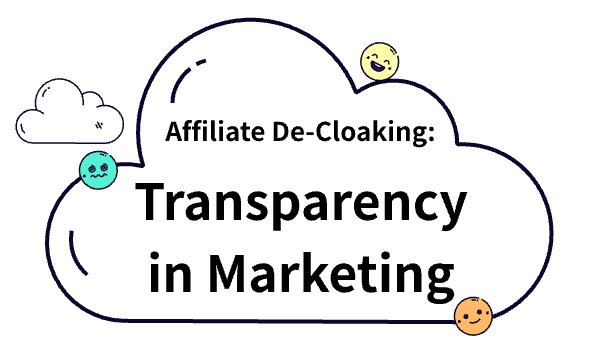Affiliate De-Cloaking: Transparency in Marketing

In the complex ecosystem of affiliate marketing, transparency is crucial for maintaining trust between merchants, affiliates, and consumers. While cloaking hides certain content or redirects, affiliate de-cloaking is the process or technology that reveals or bypasses cloaked links and content to ensure authenticity and accountability.
What Is Affiliate De-Cloaking?
Affiliate de-cloaking refers to tools and methods used to unmask cloaked affiliate links or hidden content. This allows merchants and advertisers to verify traffic sources, detect fraudulent activity, and ensure that the audience is receiving genuine, compliant promotional material.
Why Is Affiliate De-Cloaking Important?
While cloaking can protect marketing strategies and prevent premature bans, it also creates opacity, which can hide malicious practices such as cookie stuffing, false redirects, or traffic manipulation. De-cloaking helps maintain transparency and fairness in the affiliate ecosystem.
How Does Affiliate De-Cloaking Work?
Techniques include:
Parsing URLs to reveal the underlying affiliate tracking parameters
Monitoring redirects to expose final destination pages
Using browser emulation to detect dynamic content replacement
Comparing cloaked content with known whitelist databases
Applications and Use Cases
Advertisers verifying the authenticity of affiliate traffic
Affiliate networks auditing partner compliance
Anti-fraud teams detecting invalid or incentivized clicks
Consumers using browser extensions to see real affiliate links
Benefits of Affiliate De-Cloaking
Protects merchant interests by preventing fraudulent commissions
Enhances network transparency and accountability
Enables affiliates to build trust with clear link disclosure
Improves compliance with advertising regulations
Challenges and Risks
De-cloaking can expose proprietary marketing tactics
Overuse may lead to false positives and partner conflicts
Requires balance between privacy and transparency
Case Study
An affiliate network implemented a de-cloaking system to audit traffic. It uncovered multiple affiliates engaging in cloaking to hide cookie stuffing. After corrective action, network quality improved, and advertisers reported higher conversion authenticity.
Who Should Care About Affiliate De-Cloaking?
Advertisers seeking fraud prevention
Affiliate network managers
Compliance officers
Affiliate marketers aiming for long-term credibility
For secure and balanced cloaking solutions, and to understand how to responsibly manage affiliate links, visit adcloaking.com.
